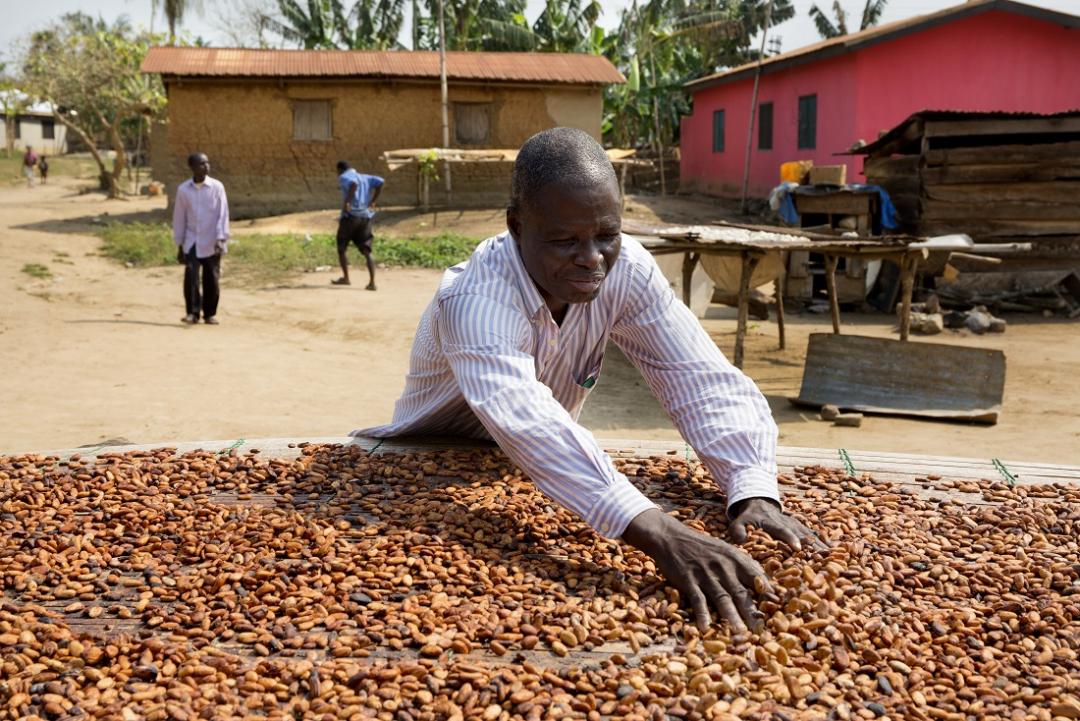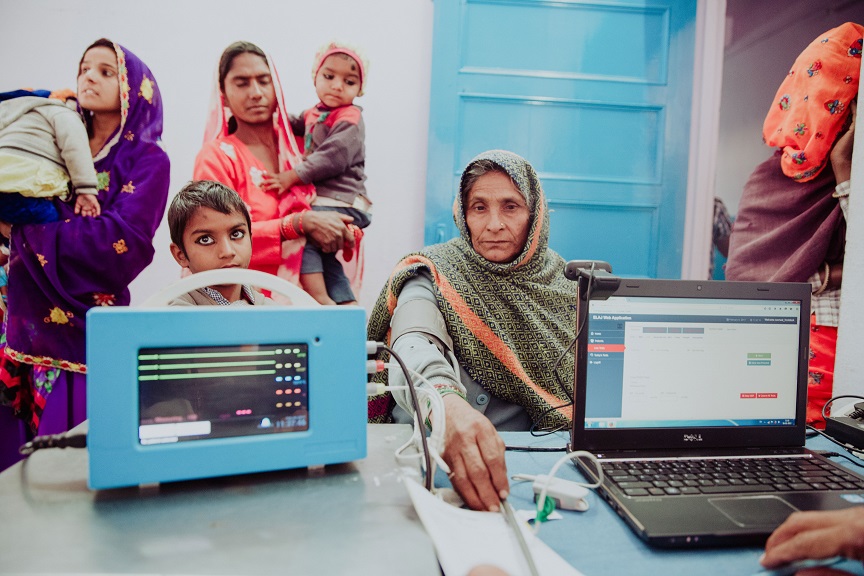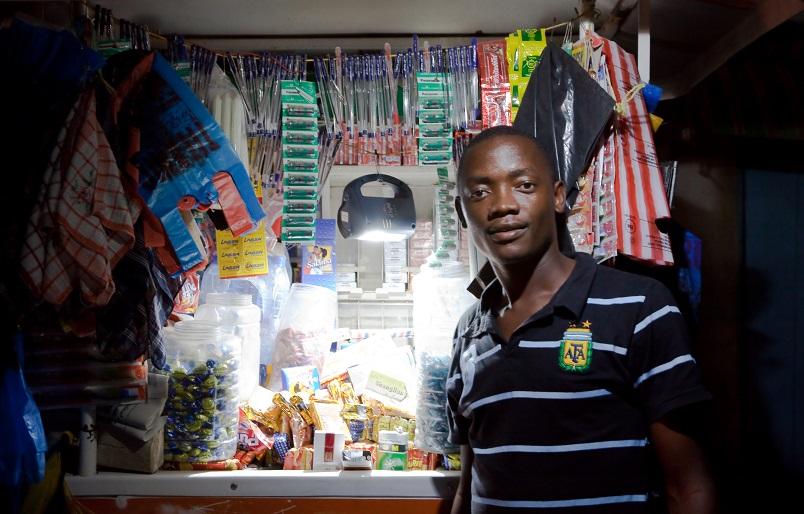Seven questions to make your business more inclusive of low-income and marginalized communities
- Inclusive business is more than a catchphrase. It is the foundation of a more just and equitable economy that reduces inequality, drives shared prosperity and protects the environment.
- If businesses are to be truly inclusive, they must incorporate the needs of low-income and marginalized people across their operations.
- Acumen and EY teams have developed an inclusive business playbook intended to guide and inspire action by business leaders, regardless of their starting point.
While capitalism has created enormous global prosperity, it has also left too many people behind. With extreme poverty already on the rise as a result of the pandemic — and with climate change threatening to deepen inequality still further, as vulnerable communities are hit first and worst by its effects — an economic system that is fairer, more trustworthy and capable of addressing humanity’s most profound challenges is urgently needed.
Business is a critical actor in forging that system and has a responsibility to help create a more inclusive, sustainable and trusted form of capitalism. With revenues bigger than some countries and supply chains that wrap around the globe, business exerts incredible influence over societies and ecosystems. Rightly, people increasingly expect the companies they work for, buy from and invest in to channel their knowledge, resources and influence toward tackling society’s toughest challenges.
As Jacqueline Novogratz, Founder and CEO of global social impact investor Acumen, rightly observes, “Market forces are not invisible hands, they are our hands, and collectively we hold the power to extend the benefits and opportunities of economic prosperity to everyone.” We share her belief that addressing the interconnected challenges of climate change and social inequality requires business to redefine success, to reject the notion that maximizing profit is its sole purpose, and to fairly distribute risk and reward across stakeholders.
Many impact entrepreneurs — among them past EY Entrepreneur Of The YearTM winners and Acumen investees — already embody this paradigm shift. All over the world, and especially in low-income and marginalized communities, their innovative business models aren’t just extending affordable access to life-enhancing products and services. They’re also providing opportunities for decent employment, distributing value more equitably throughout supply chains, and broadening participation in governance and ownership. For example:
- Ansaar Management Company (AMC) doesn’t just build affordable homes and thriving communities for low-income families in Pakistan. It creates employment opportunities for local tradespeople and is 41% owned by its employees.
- Tony’s Chocolonely’s five interrelated sourcing principles aren’t only designed to make its own chocolate 100% slave-free. They’re intended to transform the supply chain practices of “big choco” and make slave-free chocolate the norm across the entire industry.
- Saral Designs‘ novel “business in a box” concept isn’t only designed to slash the costs of manufacturing and distributing high-quality sanitary napkins. It empowers a growing network of local entrepreneurs to profitably tackle the issue of period poverty across South Asia and Africa.
These and other case studies in the playbook help bring to life how true inclusion of low-income and marginalized communities calls for a much more systemic approach. Drawing on their stories, the playbook offers seven questions that can help guide purposeful businesses of all sizes on their transition to more inclusive practices and models.

© Tony's Chocolonely
1. Purpose: what if business purpose were framed in terms of profitably solving the problems of people and planet, and not profiting from causing them?
This outlook on purpose encourages companies to think about who or what they are in service of, and how they fulfil broader societal goals. “The social mission came before the business,” says Steve Jackson OBE DL, founder of Recycling Lives, which combines a commercial enterprise and charitable organization to provide a more comprehensive approach to the interconnected challenges of homelessness, offending and reoffending in the UK.
2. Strategy: what if strategy were built with a “future back” approach to inclusion, in which you identify a desired future state and work backwards to achieve it?
Catastrophic climate change, and its disproportionate impacts on low-income and marginalized communities, cannot be avoided using strategies that build incrementally from the present. It requires systems change, rooted in a new transcendent goal of equitably meeting the needs of current and future generations, within the means of the planet. Working back from that desired future state — and determining what would have to true to make that possible — is critical to making sure that change happens at the pace and scale required. This isn’t easy, but it’s necessary, as Tony’s Chocolonely’s Chief Chocolate Officer, Henk Jan Beltman, explains. “There’s no quick and easy route to systems change. To change the system, you must work within the system and show that change is possible, even in the hardest places.”
3. Customers: what if the needs of low-income and marginalized customers were prioritized as a lens for innovating products and services?
At a minimum, inclusive businesses must accept accountability for the impact of their products and services, making sure that they don’t undermine health or well-being. While all businesses consider the needs of their customers, effectively serving low-income and marginalized people also means listening deeply to their needs, concerns and desires. D.light, a solar energy provider that has positively impacted the lives of more than 100 million low-income people, credits its ongoing success to its commitment to listening.
4. Workforce: what if equitable, dignified, and stable employment offered everyone, particularly low-income and marginalized people, the ability to lead fulfilling lives?
To build a truly inclusive business, it’s critical to go beyond the bare legal minimum, providing sustainable wages and benefits to all employees, including part-time and informal workers. AMC, for example, has developed an employee benefit trust, through which its employees own 41% of the company. Aligned investors are also critical. At Coliba, a recycling company in Ghana, the founder bought out an investor whose values were incompatible to make sure its low-income employees were treated and paid fairly for their labor.
5. Supply chain: what if procurement practices prioritized the human dignity and well-being of low-income and marginalized people, and the fair distribution of value throughout the supply chain?
The supply chain is where companies are most likely to encounter exploitation of low-income and marginalized workers. In sectors like smallholder farming, labor is often valued by output, increasing risks to workers and offering no protection. Azahar Coffee is a Colombian social enterprise that upends this imbalanced relationship by rewarding smallholder farmers for growing the highest-quality coffee through a fixed pricing structure. Azahar’s approach — defined by radical transparency — makes coffee farming a feasible way to make a living, transforming a historically exploitative industry.
6. Governance and ownership: what if participation in governance and ownership were broadened to more fairly share rewards and decision-making power?
While traditional ownership mechanisms reward company investors and executives for business success, more inclusive models empower a wider range of people to participate in ownership and governance, and reap the rewards. Saral Designs’ “business-in-a-box” model empowers entrepreneurs and grassroots organizations to set up and run their own local manufacturing units, with Saral supplying machines, raw materials and training. Founder Suhani Sohan explains the crucial difference thus: “Multinational corporations tend to shrink contract suppliers’ margins over time, and offer very little ownership and control over the product. By contrast, our model gives local entrepreneurs the freedom to develop their own brands, as well as to use our own.”

7. Value indicators: what if value and success were defined beyond financial metrics to incorporate measures of long-term value creation for low-income and marginalized stakeholders?
How a company defines success is critical to achieving impact, and communicating financial and social value. For biopharmaceuticals company Biocon, the approach is clear: “I have always believed that blockbuster drugs are not about making a billion dollars, but about reaching a billion patients,” says founder and executive chairperson, Dr. Kiran Mazumdar-Shaw. However, for many, there’s a temptation to see financial returns, and positive social and environmental impact, as competing demands. By overcoming this tension, a business can identify meaningful measurement indicators, using this information to further advance inclusion and business success.
The inclusive business playbook stands as further evidence of the continuing EY commitment to explore what more business can do to become truly purposeful, inclusive and sustainable. As well as building on involvement with The Embankment Project for Inclusive Capitalism (EPIC), the Council for Inclusive Capitalism and the World Economic Forum International Business Council, it also amplifies the global EY organization’s long-standing support of the impact entrepreneurship ecosystem.
Working with impact entrepreneurs is a cornerstone of the EY Ripples program, which aims to positively impact one billion lives by 2030. Over the past decade, EY professionals have completed more than 500 projects with impact entrepreneurs in over 60 countries, working on a not-for-profit basis to help their life-changing enterprises to improve their resilience, productivity and capacity to scale sustainably.
While the transition to more inclusive businesses and economies will be neither easy nor linear, we all have a role to play, and this is a powerful way for EY people to use their skills, knowledge and experience to make a difference. We hope you will join us in continuing to build on this work, and to expand the conversation on the role of business in a society where people and planet thrive.
The views reflected in this article are the views of the authors and do not necessarily reflect the views of the global EY organization or its member firms.
